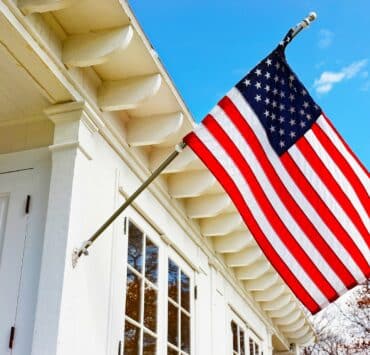— Kennedy, in a campaign video, Sept. 2:

“BlackRock! There’s three companies. BlackRock, Vanguard and State Street. Those three companies, which all own each other, so it’s really one huge behemoth, also own 88 percent of the S&P 500. Now they have a new target, which is to gain ownership of all of the single-family residences in this country.”
— Kennedy, in a campaign speech, Aug. 27:
JUST IN: 🇺🇸 Presidential candidate RFK Jr. warns BlackRock is outbidding Americans and plans to gain ownership of all single-family homes in US. pic.twitter.com/8l0riId7xZ
— Watcher.Guru (@WatcherGuru) August 27, 2023
Independent presidential candidate Robert F. Kennedy Jr. has recently stirred controversy with his housing conspiracy theory, claiming that BlackRock, State Street, and Vanguard are conspiring to rob Americans of their ability to own homes. However, a thorough examination of his claims reveals a mix of misinformation and financial confusion.
In a tweet on September 3, Kennedy asserted,
“BlackRock + State Street + Vanguard are robbing Americans of the ability to own homes,”
While in a campaign video on September 2, he expressed concern about BlackRock’s alleged strategy of outbidding prospective homebuyers with all-cash offers and turning homes into rentals.
Kennedy’s accusations, however, fall apart upon closer scrutiny. In a detailed analysis, The Washington Post dismantles his claims, starting with the fact that Kennedy has confused BlackRock with Blackstone, a separate entity actively involved in buying single-family homes. The report highlights that BlackRock, the world’s largest asset manager, is not engaged in such practices.
Kennedy, an independent presidential candidate, has gained notoriety for promoting controversial conspiracy theories, such as the belief that vaccines cause autism and suggesting the possibility of the coronavirus being a bioweapon intentionally sparing Ashkenazi Jews and Chinese individuals while disproportionately affecting White and Black populations.
Adding to his repertoire, Kennedy has now introduced a new theory, claiming that malevolent institutional investors are responsible for the surge in home prices.
In a video titled “I’ll assist you in buying a home,” Kennedy singles out BlackRock, alleging that the company swiftly intervenes in the housing market, outbidding potential homebuyers with all-cash offers and converting properties into rentals. Vanguard and State Street are also frequently included in his criticism.
While acknowledging the genuine housing crisis in the United States, marked by a scarcity of homes driving prices to unprecedented levels, Kennedy’s assertions are deemed financially uninformed and baseless.
One glaring error is his confusion of two distinct entities—BlackRock and Blackstone. BlackRock, contrary to Kennedy’s claims, is not involved in the acquisition of single-family homes; that domain belongs to Blackstone, a separate company with limited influence on the market.
Despite admitting to this fundamental error, Kennedy’s campaign exacerbates the situation by persisting in their inaccurate claims.
The campaign statement acknowledged, “Mr. Kennedy misspoke.” It argued that both BlackRock and Blackstone originated under the Blackstone Financial Management umbrella.
Furthermore, it asserted that Vanguard holds the majority of Blackstone’s shares, while BlackRock is the primary shareholder in Vanguard. The statement suggested that it would be disingenuous to assert that BlackRock is not involved in profiting from the acquisition of American homes, insinuating a point being made by Mr. Kessler.
However, it’s crucial to note that the connection between BlackRock and Blackstone ceased in 1994—nearly three decades ago. Substantial changes have occurred since then.
The facts reveal that BlackRock, under the leadership of Larry Fink, established a subsidiary within the Blackstone corporate structure in 1988, primarily engaged in trading mortgages and fixed-income assets.
However, a dispute between Fink and Blackstone’s CEO, Stephen A. Schwarzman, arose over compensation six years later. Consequently, Schwarzman sold the subsidiary, then known as Blackstone Financial Management, to a bank for $240 million. Fink subsequently renamed the entity BlackRock, and within a few years, it became an independent entity.
In 2013, Schwarzman characterized the decision to sever ties with BlackRock as a “heroic mistake.” Both companies are publicly traded, with BlackRock now surpassing Blackstone in value. Presently, BlackRock boasts a market capitalization of $111 billion, whereas Blackstone’s market capitalization stands at $81 billion. Schwarzman’s considerable wealth, estimated at $27 billion by Forbes magazine, would have seen an additional $10 billion with his previous 9 percent ownership of what is currently BlackRock.
Despite their similar names, the two entities have evolved into distinct enterprises. Blackstone specializes in private equity and alternative investments, involving active pursuit of lucrative opportunities that may take years to yield returns. This service is primarily provided to institutions and affluent individuals who pay substantial fees for Blackstone’s expertise.
Conversely, BlackRock has ascended to become the world’s largest asset manager, focusing on predominantly passive investments. The company sells mutual funds and exchange-traded funds (ETFs) under the IShares brand, mirroring stock indexes like the Standard & Poor’s 500 Index. Not requiring extensive investment research, BlackRock’s fees are notably minimal due to the passive nature of its investments.
Three prominent companies, BlackRock, Vanguard, and State Street, dominate the index-fund market, and interestingly, these are the very companies regularly targeted by Kennedy. However, it’s crucial to note that none of them engage in the purchase of single-family homes.
Kennedy’s claims that these companies collectively “own 88 percent of the S&P 500” and “all own each other” are debunked. A 2017 study clarified that the three firms constitute the largest shareholder in 88 percent of S&P 500 firms and 40 percent of all companies listed on U.S. stock exchanges. Contrary to Kennedy’s insinuations, this does not imply control, as their average ownership in the mentioned firms is almost 18 percent.
It’s emphasized that these firms, catering to millions of investors, manage shares on their behalf. If you invest in an index fund through a 401(k) retirement fund, chances are it is managed by one of these three companies. While there have been accusations, particularly from the right, regarding the firms influencing companies with environmental, social, and governance agendas, this is distinct from Kennedy’s claims.
Vanguard, a private company, is owned by its fund shareholders, while BlackRock and State Street, as public companies, are part of the S&P 500. In the process of mimicking indexes, these companies naturally end up owning shares of each other.
Clearing the air, Vanguard spokesman Netanel Spero stated, “We do not purchase single- or multifamily housing.” BlackRock, responding to Kennedy’s attacks, has explicitly stated on their webpage that they are not buying individual houses in the U.S. Instead, they emphasize their significant role as investors in mortgage securities, contributing to housing finance programs.
Now, addressing Kennedy’s inaccuracies about Blackstone’s influence in the housing market, it’s clarified that Blackstone entered real estate after the 2009 recession, buying foreclosed houses and later exiting the market in 2019. In 2021, they invested in Home Partners of America, focusing on single-family homes.
Contrary to Kennedy’s claim that Blackstone steals homes, the actual process involves potential homebuyers reaching out to Home Partners, which purchases the house and rents it to the buyer. This allows individuals, who may not immediately afford a single-family property, to have the option to buy the house within five years at a guaranteed purchase price.
Disputing claims of market influence, Blackstone cites statistics that institutional ownership of more than 1,000 homes constitutes 0.4 percent of the U.S. single-family housing stock, with Blackstone owning 0.03 percent. The evidence does not support the contention that institutional investors significantly impact home prices, especially with recent changes in mortgage interest rates cooling institutional investors’ participation. Landlords with over 1,000 properties accounted for only 0.4 percent of U.S. home purchases in the second quarter, down from a peak of 2.4 percent in late 2021, according to John Burns Research & Consulting.
Related posts:
 Reduce Your Environmental Footprint: Simple Water Conservation Tips for Your Home
Reduce Your Environmental Footprint: Simple Water Conservation Tips for Your Home
 10 Precautions to Stay Safe During a Home Renovation
10 Precautions to Stay Safe During a Home Renovation
 Europe’s Housing Market Squeezed Amidst Cost-of-Living Crisis
Europe’s Housing Market Squeezed Amidst Cost-of-Living Crisis
 Increase in US Home Construction in 2023 Signals Robust Market Recovery
Increase in US Home Construction in 2023 Signals Robust Market Recovery
 Increased Housing Confidence Brightens 2024, But Buying a Home Still Tough
Increased Housing Confidence Brightens 2024, But Buying a Home Still Tough



